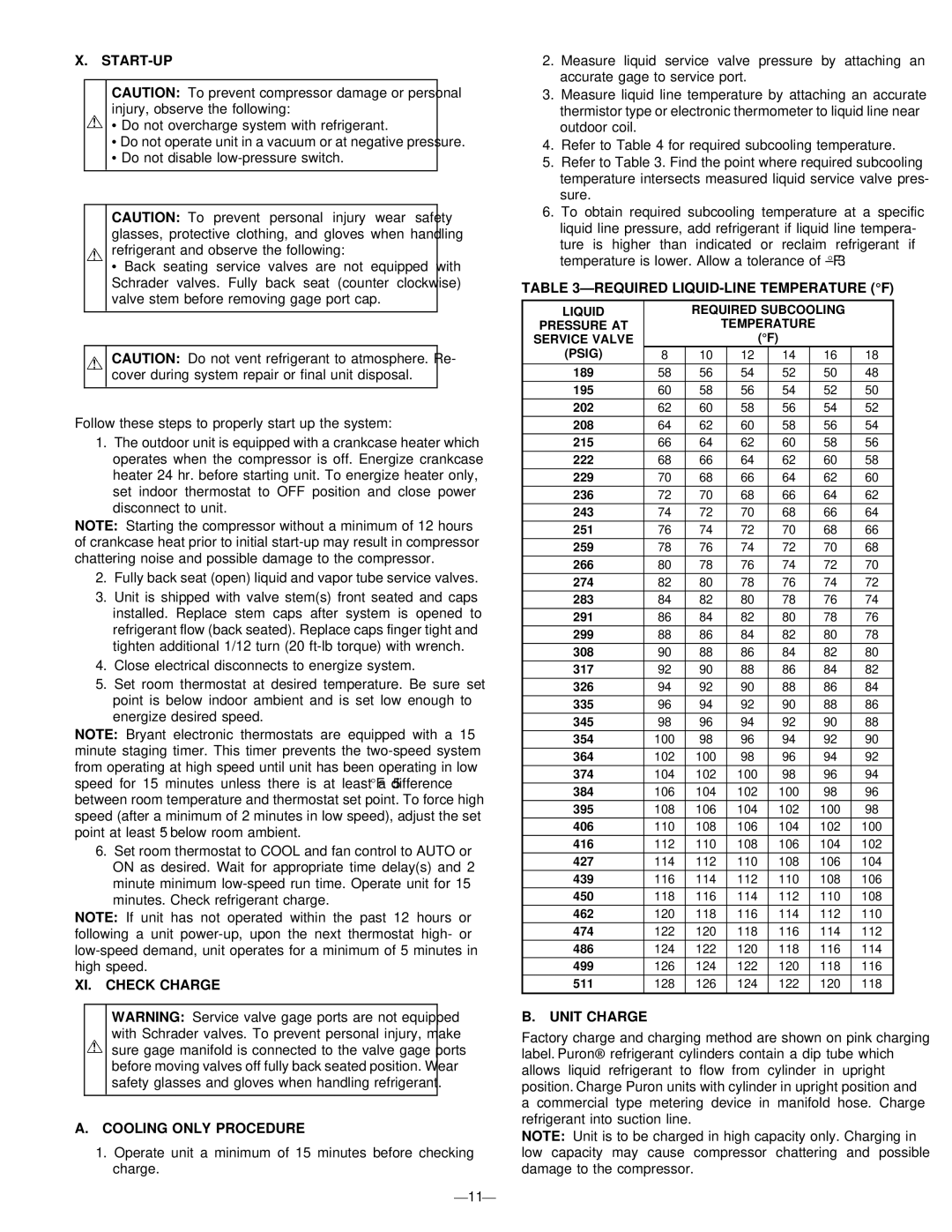598B specifications
The Bryant 598B, a model in the world of heating, ventilation, and air conditioning (HVAC) systems, stands out due to its efficient and reliable performance. This compact air conditioning unit is engineered to provide optimal cooling, making it an excellent choice for various residential and light commercial applications.One of the main features of the Bryant 598B is its impressive SEER (Seasonal Energy Efficiency Ratio) rating, which indicates its energy efficiency in cooling mode. With a SEER rating that often exceeds industry standards, the 598B helps homeowners save on energy bills while minimizing their carbon footprint. This high efficiency is a key advantage, especially in regions experiencing extreme temperatures.
The Bryant 598B utilizes advanced technologies that enhance its overall performance and longevity. One of the standout technologies is the two-stage compressor, which allows the unit to operate at different cooling capacities depending on the current heat load. This capability not only improves comfort levels by maintaining consistent temperatures but also reduces wear and tear on the system, leading to extended lifespan and reliability.
Another noteworthy characteristic of the 598B is its quiet operation. Equipped with a sound-dampening design, the unit minimizes operational noise, ensuring peaceful indoor and outdoor environments. This feature is especially appreciated in areas where noise reduction is a priority, such as residential neighborhoods.
The Bryant 598B also comes with a durable cabinet built from high-quality materials that resist corrosion and withstand harsh weather conditions. This durability is crucial for maintaining performance over time, providing peace of mind for homeowners who invest in this HVAC solution.
Installation and maintenance of the Bryant 598B are facilitated by its user-friendly design. The unit includes features that allow for straightforward access to components, making service and upkeep more manageable for HVAC professionals.
In conclusion, the Bryant 598B air conditioning unit offers an appealing combination of energy efficiency, advanced technology, quiet operation, and durability. Whether for a new home or a system replacement, the Bryant 598B is an excellent choice for those seeking reliable and effective cooling solutions that align with modern efficiency standards.

